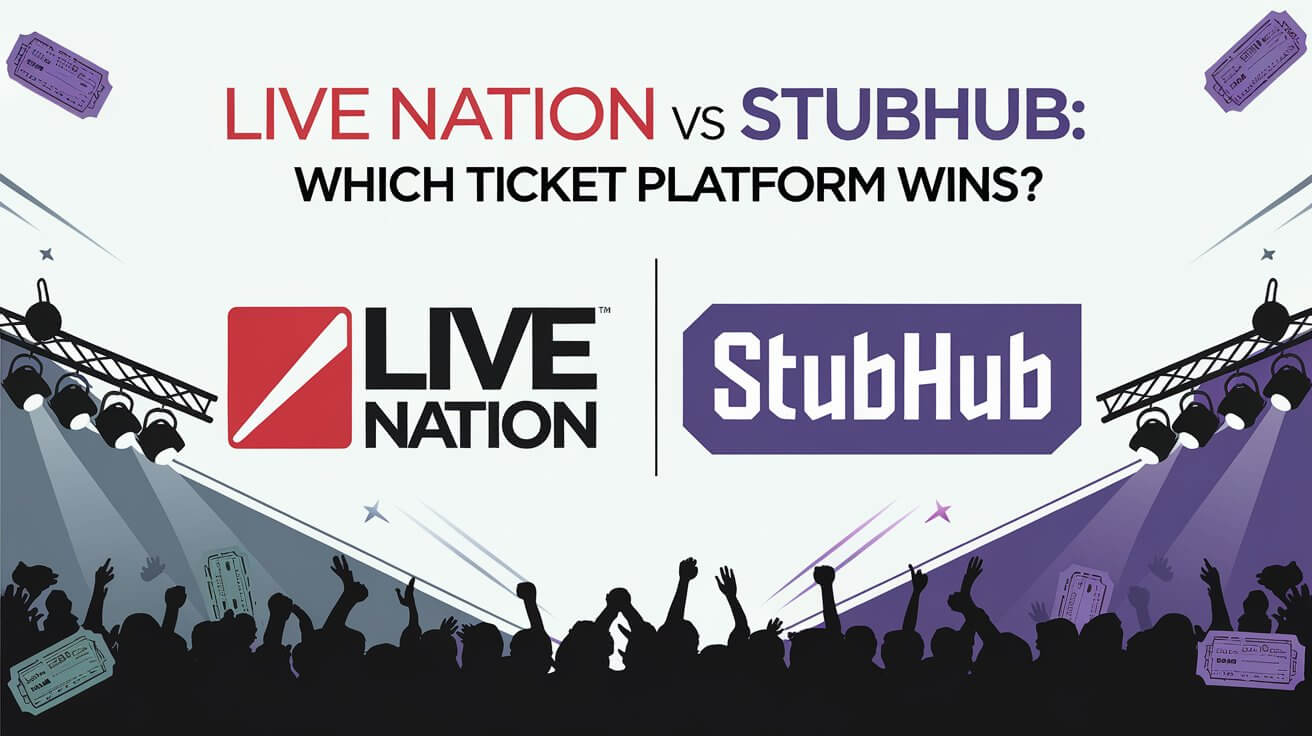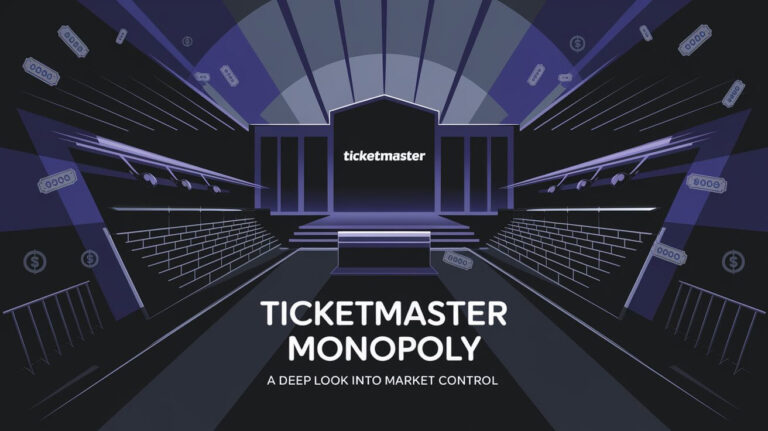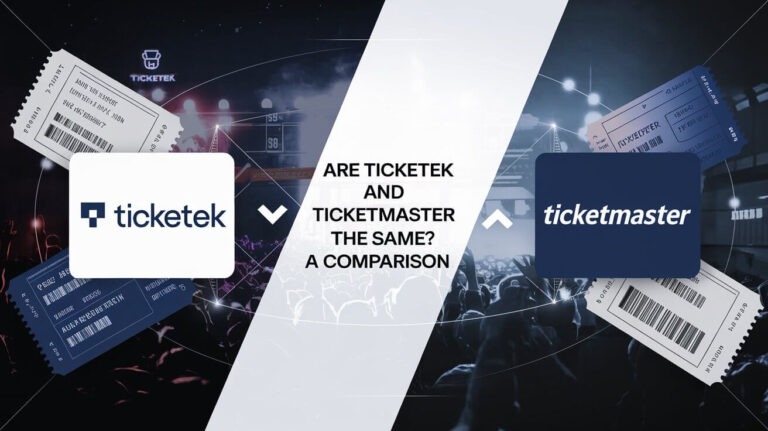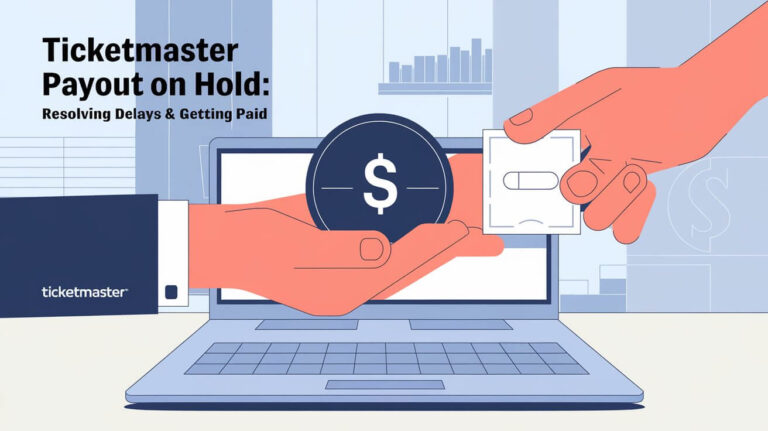
The live event ticketing industry has changed a lot since Paul Allen bought Ticketmaster in 1993. Now, tickets are mostly bought and sold online. Live Nation Entertainment, worth over $22 billion, owns Ticketmaster. It handles about two-thirds of U.S. ticket sales.
StubHub is a big player in the secondary ticket market, competing with Live Nation. The ticketing industry has faced criticism, with the Department of Justice suing Live Nation for a monopoly in live concerts. Despite Live Nation’s strong position, with deals at over 265 venues and 60 top amphitheaters, new competitors like SeatGeek and Vivid Seats have entered the market.
Market Dominance and Revenue Landscape
The live entertainment industry has seen a big comeback in recent years. Spending on live events went up by nearly 25% in 2023 and slightly less than 20% in the first half of 2024. Ticket prices for sports and concerts also rose, by 20% and 10% in 2024, respectively. But experts think the growth will slow down to 5-10% in 2025.
Leading the market are Live Nation’s Ticketmaster and StubHub. Their gross transaction value (GTV) jumped by 20-30% in 2023. These companies have doubled their revenue since 2019, showing their strong hold on the industry.
Live Nation’s $22.7 Billion Market Value
Live Nation, a giant in entertainment, has a market value of $22.7 billion as of summer 2024. This shows its huge influence in live entertainment. Ticketmaster, a part of Live Nation, is the top ticket provider. It serves 77% of the top 100 amphitheaters worldwide and 82% in the U.S.
StubHub’s Private Ownership and IPO Plans
StubHub, a leading secondary ticket marketplace, is still privately owned. It recently considered going public at a $16.5 billion valuation. Meanwhile, SeatGeek almost went public in a $1.4 billion deal, and Vivid Seats has a market cap of $1.1 billion.
Industry Revenue Distribution
The value of these ticketing marketplaces is similar to that of all 32 NHL teams, according to Sportico’s valuations. Live Nation, the biggest player, made $16.7 billion in revenue in 2022. This solidifies its lead in the live entertainment world.
| Metric | 2022 | 2023 | 2024 |
|---|---|---|---|
| Consumer Spending Growth on Live Entertainment | 25% | 20% | 10% |
| Admission Price Increase (Sports) | 20% | – | – |
| Admission Price Increase (Concerts) | 10% | – | – |
| Ticketing Companies Revenue Growth | 100% | – | – |
| StubHub’s Sales and Marketing Spend % of Revenue | 60% | 40% | – |
| Vivid Seats’ Sales and Marketing Spend % of Revenue | 40% | 20% | – |
Live Nation Vs Stubhub: Primary vs Secondary Market Dynamics
The world of live entertainment is changing fast. Ticket brokers, live entertainment providers, and the primary and secondary markets are all connected but often disagree. Live Nation, with Ticketmaster, works in both markets. StubHub mainly focuses on reselling tickets.
The primary market sells tickets directly to fans. Ticketmaster, the official ticket seller for many NFL teams, is big in this area. The secondary market, however, sells tickets at higher prices by fans and brokers.
StubHub has spoken out against Live Nation. It says Live Nation’s “Fair Ticketing Act” doesn’t really help the industry. The live events market is huge, worth $126 billion. This includes $48 billion in primary ticket sales and $12 billion in secondary sales.
| Metric | Live Nation | StubHub |
|---|---|---|
| Market Presence | Primary and Secondary Markets | Secondary Market |
| Key Partnerships | Official Ticketing Partner for NFL Teams | N/A |
| Market Share | 87% of clients on mobile ticketing | 30.5% MLB market share in 2021 |
| Financial Position | $1.2 billion raised during pandemic, 51% stake in OCESA Entretenimiento | $2.5 billion in debt, but over $500 million in cash |
The future of live entertainment ticket sales is tied to the primary and secondary markets. How these markets work will greatly affect the industry and fans.
Ticket Pricing Models and Fee Structures
The ticketing industry often frustrates consumers with its complex fee structures. Service fees, processing fees, and facility charges can greatly increase ticket prices. This leaves many feeling they’re not getting a fair deal.
Service and Processing Fee Breakdown
About two-thirds of the service charge goes to the venue. The rest goes to the primary ticketing company. Companies like Ticketmaster make around 5-7% on each ticket sale. This is less than what other platforms charge.
Hidden Costs and Drip Pricing Strategy
Secondary marketplaces like StubHub use a “drip pricing” strategy. Fees are revealed late, making tickets 21% more expensive. Additional checkout fees can even reach up to $500 per ticket.
Impact on Consumer Spending
The average ticket fee is now 27 percent of the ticket’s face value. Some fees can be as high as 37 percent. This affects consumer spending, with many people complaining to the Federal Trade Commission (FTC) about ticket prices.
High ticket prices aren’t just because of Ticketmaster service charges. These fees are a small part of the overall cost. They mainly help venues and ticketing companies cover their expenses.
| Ticket Type | Average Ticket Fee (% of Face Value) |
|---|---|
| Sporting Events | 20% |
| Concerts | 30% |
Cross-Platform Ticket Transfer Capabilities
The world of ticket buying and resale is changing fast. Now, it’s key for people to easily move tickets between different places. Even though direct transfers between Ticketmaster and StubHub aren’t always possible, these sites have found new ways to help with ticket transfer and ticket resale.
But, some tickets can’t be transferred, making it hard for people to sell them on the secondary market. Luckily, smart brokers use special software. This lets them list tickets on many sites without selling the same ticket twice. It makes buying and selling tickets easier for everyone.
Scalpers keep finding ways to sell tickets, even when big sites like Ticketmaster try to stop them. A report by 404 Media shows how scalpers use tricks to sell tickets. They find ways to get around the rules set by ticketing sites.
- Ticketmaster handles about two-thirds of U.S. ticketing needs.
- A 2018 report said ticketing fees add up to about 30% of ticket prices. Fees can vary a lot.
- Ticketmaster wants to make 2% of ticket prices in profit. They give one-third of service fees to venues.
The ticketing world is always changing. Being able to easily transfer and resell tickets is very important. It’s a big challenge for everyone involved. Finding a way to balance new ideas, protect buyers, and follow rules is key.
Legal Battles and Antitrust Concerns
The live entertainment industry has faced a lot of scrutiny lately. Live Nation Entertainment and Ticketmaster are at the center of a big legal fight. In May, the U.S. Department of Justice and 30 state and district attorneys general filed a lawsuit against them. They say the company has illegal monopolies in ticket selling and concert promotion markets.
The lawsuit is 124 pages long and shows a pattern of antitrust violations and anti-competitive practices. It wants to make the live concert industry more competitive again. This is because Live Nation-Ticketmaster has become too big.
Department of Justice Lawsuit Details
The complaint says Live Nation-Ticketmaster has unlawfully maintained monopolies in concert promotions and primary ticketing markets. They are accused of using exclusionary conduct to hurt live concert venues and arenas. This has made it hard for new competitors to enter the market.
State Attorney General Involvement
Thirty state and district attorneys general are joining the lawsuit. They are worried about the impact of Live Nation-Ticketmaster’s dominance on the ticketing industry regulation and consumer welfare. They want to break up the live entertainment monopoly and make the market more competitive.
Competition Impact Assessment
The lawsuit says Live Nation-Ticketmaster’s self-reinforcing business model, called the “flywheel,” helps them keep their market power. They capture fees and revenue from concert fans and sponsors. The company also retaliates against potential entrants in the U.S. concert promotions market, trying to scare off competition.
The outcome of this antitrust lawsuit will greatly affect the ticketing industry and live entertainment landscape. It will influence consumer protection and industry reform initiatives for years to come.
Consumer Protection and Industry Reform Initiatives
The ticketing industry has faced growing scrutiny over unfair practices. This has led to a push for legislative action to protect consumers. The U.S. House of Representatives recently passed the Transparency in Ticket Fees Act (TICKET Act). This act requires ticket sellers to disclose the full price, including fees, upfront.
The Better Oversight of Secondary Sales (BOSS) Act also aims to crack down on improper practices in the secondary ticket market. This shows the need for change in the industry.
Live Nation, the dominant player in the industry, has proposed the Fair Fans Act. This act focuses on regulating the secondary market and giving artists more control over resale rules. However, StubHub has criticized this proposal, saying it strengthens Live Nation’s control without reforming their own practices.
Consumer advocacy groups, such as the National Consumers League and the Fans & Artists Insisting on Reforms (FAIR) initiative, support measures like ticket transferability laws. These laws would empower buyers in transactions.
These reform efforts highlight the growing need for transparency and consumer protection in the ticketing industry. The TICKET Act and BOSS Act are key legislative initiatives aimed at addressing the industry’s long-standing issues. They aim to restore fairness for ticket buyers.
Future of Ticketing: Innovation and Competition
The ticketing industry is changing fast, with new tech and players like Live Nation and Ticketmaster facing competition. The live entertainment world is growing, and ticketing’s future depends on balancing artist control, venue partnerships, and protecting consumers. It also needs fair competition among ticketing services.
New ticketing technology aims to improve the fan experience and fight scalping. Blockchain-based ticket platforms could make ticketing secure, open, and focused on fans. These changes, along with more rules and laws, might make ticketing fairer and more accessible for everyone.
The legal fights and antitrust worries over the Live Nation-Ticketmaster deal show the need for more competition and consumer safety. As the industry grows, ticketing’s future will depend on new players. They must challenge the old ways, bring fresh ideas, and give fans easy and affordable tickets.






